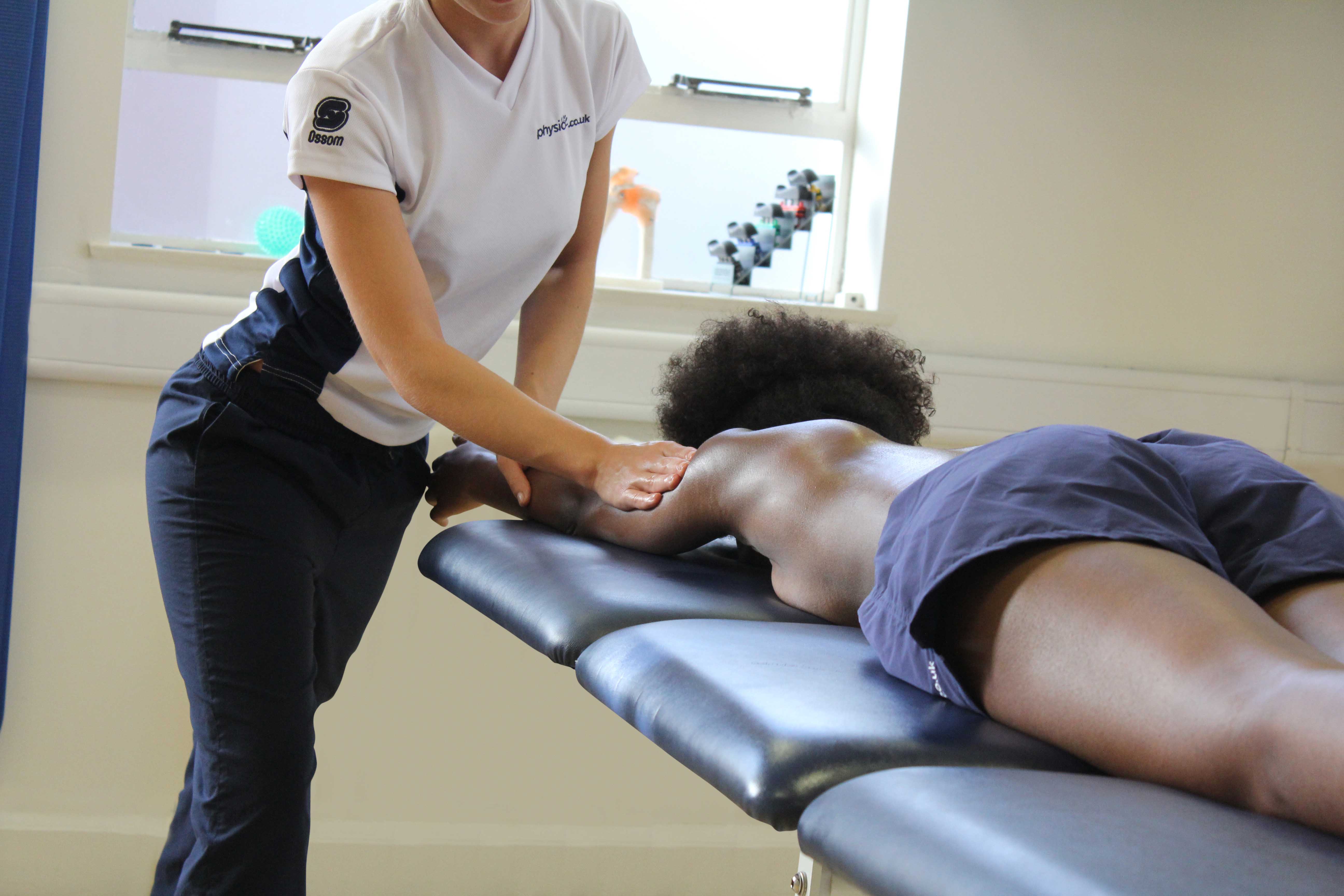The long head of biceps is the main tendon of the biceps and so is more susceptible to rupture. Rupture can occur for two main reasons:
- Progressive – the long head of biceps can, over time, be partially torn due to repetitive activity causing pain and repetitive inflammation (biceps tendonitis). If this damage is excessive it can lead to rupture (complete tear) of the tendon. The tendon falls down in to the upper arm forming a ‘pop-eye’ appearance on contraction. This is more common in older people and is associated with a rotator cuff tear. Usually surgery is not performed on elderly patients where function is not limited despite rupture.
- Traumatic - the long head of biceps is ruptured when excessive force is applied through the bicep e.g. through heavy lifting. Here, you will hear a ‘pop’ as the tendon ruptures and pain will immediately follow along with bruising, swelling and a ‘pop-eye’ appearance. Here a biceps tenodesis is performed to reattach the torn tendon.
 Above: Soft tissue massage of the shoulder and the surrounding connective tissues
Above: Soft tissue massage of the shoulder and the surrounding connective tissuesSymptoms following Biceps Tendon Repair
Following surgery, your arm will be placed in a protective sling for up to 3 weeks to protect the repair and optimise recovery. During this time, you will be instructed on the amount of movement and functional use permitted. Symptoms you may experience during this time may include:
- Pain
- Stiffness
- Swelling
- Bruising
Physiotherapy following Biceps Tendon Repair
Following surgery, it is essential to undergo a comprehensive and specific rehabilitation programme with Physio.co.uk. Physio.co.uk will provide a thorough assessment and explanation of treatment as well as design a personal rehabilitation programme in order to optimise and promote maximal recovery.
Weeks 1-3
Initial treatment with Physio.co.uk will concentrate on post operative management including minimising complications, reducing acute symptoms and the initiation of movement. Treatment will include:
- Cryotherapy
- Pain Management
- Postural Education
- Scapular setting
- Elbow, wrist, and hand range of movement exercises and strengthening
- Passive range of movement exercises for elbow and shoulder
- Begin active exercises for elbow and shoulder
- Advice and education
Weeks 4-6
At this stage, you will be weaned off your sling and encourage to increase your rehabilitation in order to improve range of movement and begin strengthening. Also, attention will be paid to restoring normal biomechanical movements through stability and proprioceptive exercises. Physio.co.uk will develop your programme with attention to personal requirements so that your surgery milestones are met. Treatment will include:
- Active range of movement exercises
- Scapular setting
- Rotator cuff strengthening
- Begin isolated bicep strengthening
- Kinetic chain control
- Proprioceptive training
- Soft tissue release
- Scar management
Weeks 7-12
Following week 7 Physio.co.uk will focus on a continuation and progression of exercises. Rehabilitation will begin to include specific exercises needed to perform functional activities and be directed to attaining full range of movement, improving muscular strength and endurance. Treatment will consist of:
- Active range of movement to full range – shoulder and elbow
- Stretching
- Increase bicep strengthening
- Eccentric bicep strengthening
- Advanced scapular stabilisation
- Open chain activities
- Sports and functional specific training
- Advanced proprioceptive exercises
- Long term management
Summary
Biceps tendon repair, or biceps tendonesis, is a common surgery performed to repair a ruptured biceps tendon. Common to both elderly (degenerative) and younger populations (traumatic), a biceps rupture can have serious implications on functional, sporting and occupational abilities. Following arthroscopic surgery, physiotherapy is an essential component of rehabilitation and Physio.co.uk will provide a comprehensive and intense treatment programme to ensure full recovery of movement, strength and functional use of your arm. Call Physio.co.uk now on 0330 088 7800 for more information or to book an appointment please contact us.

 0330 088 7800
0330 088 7800


































